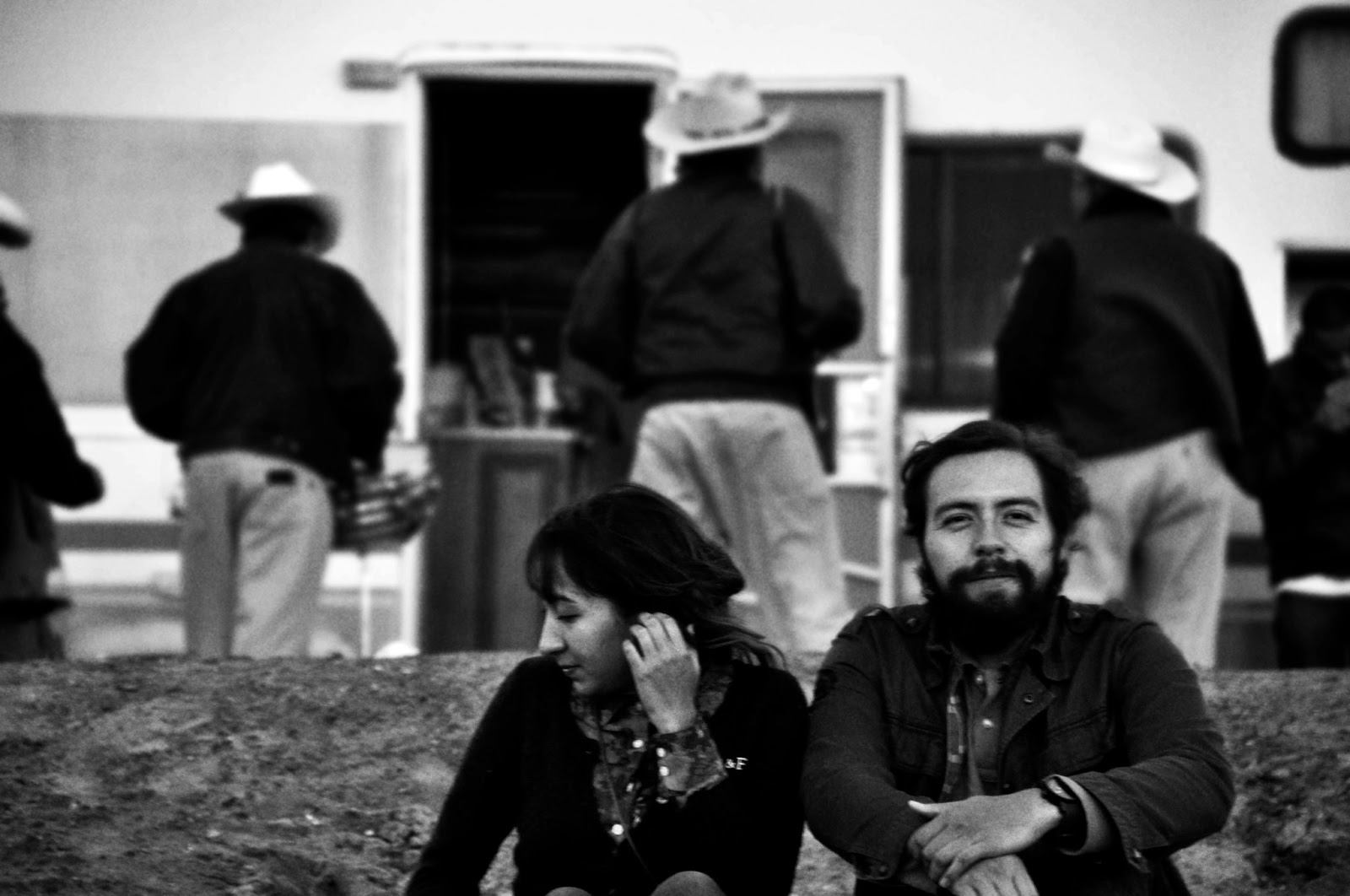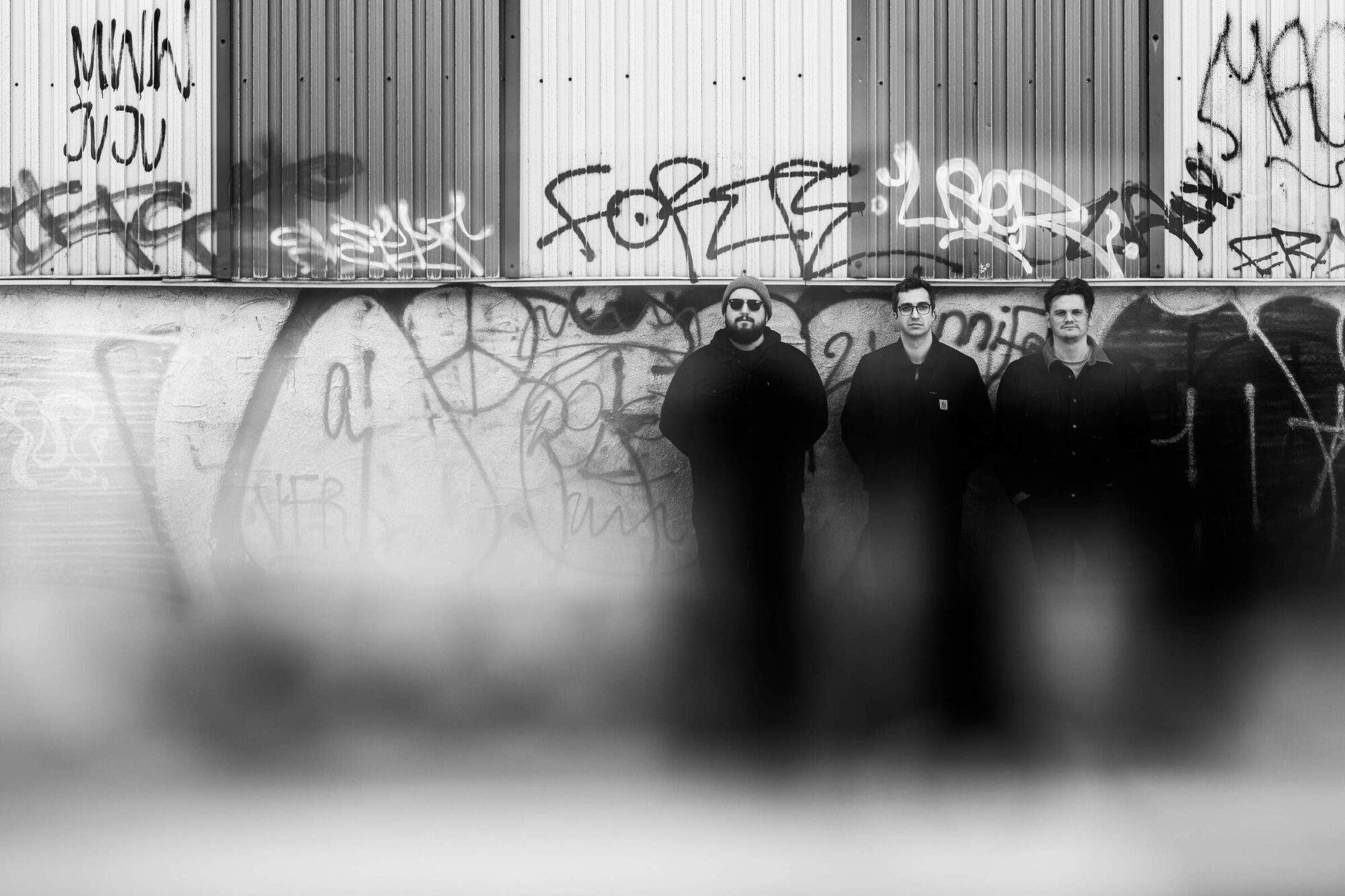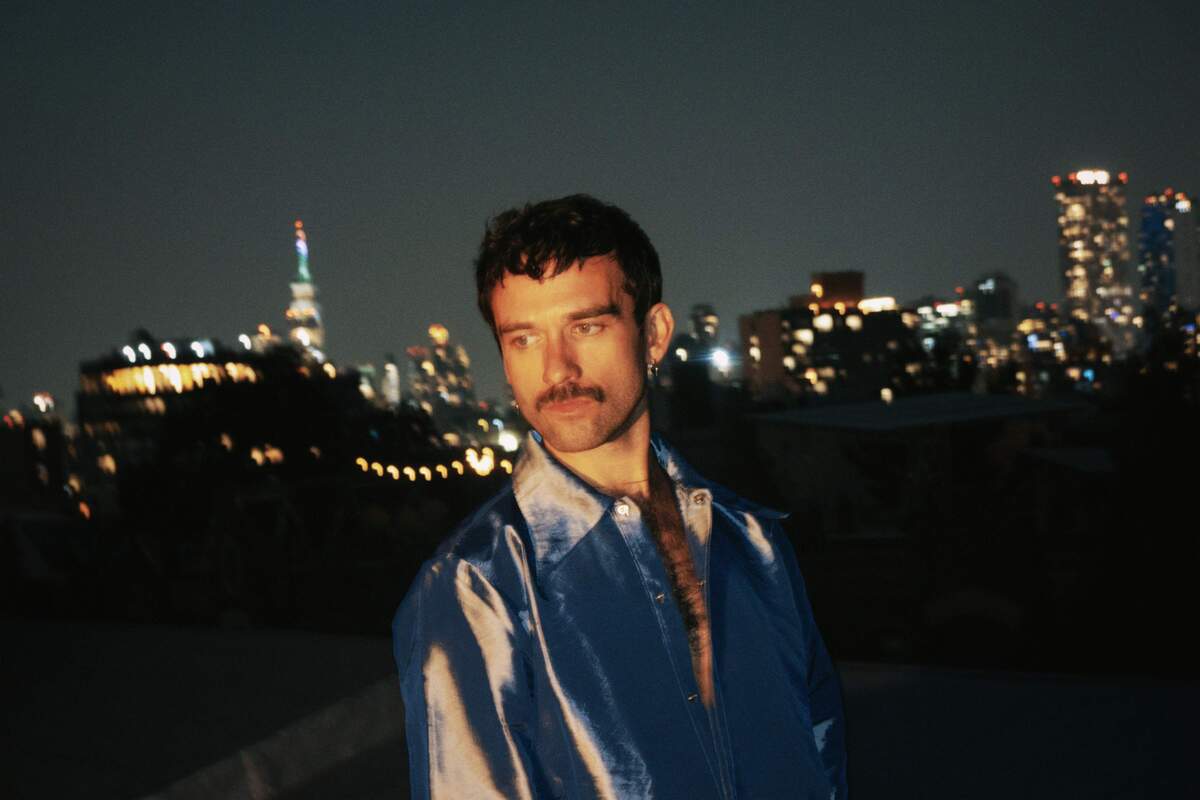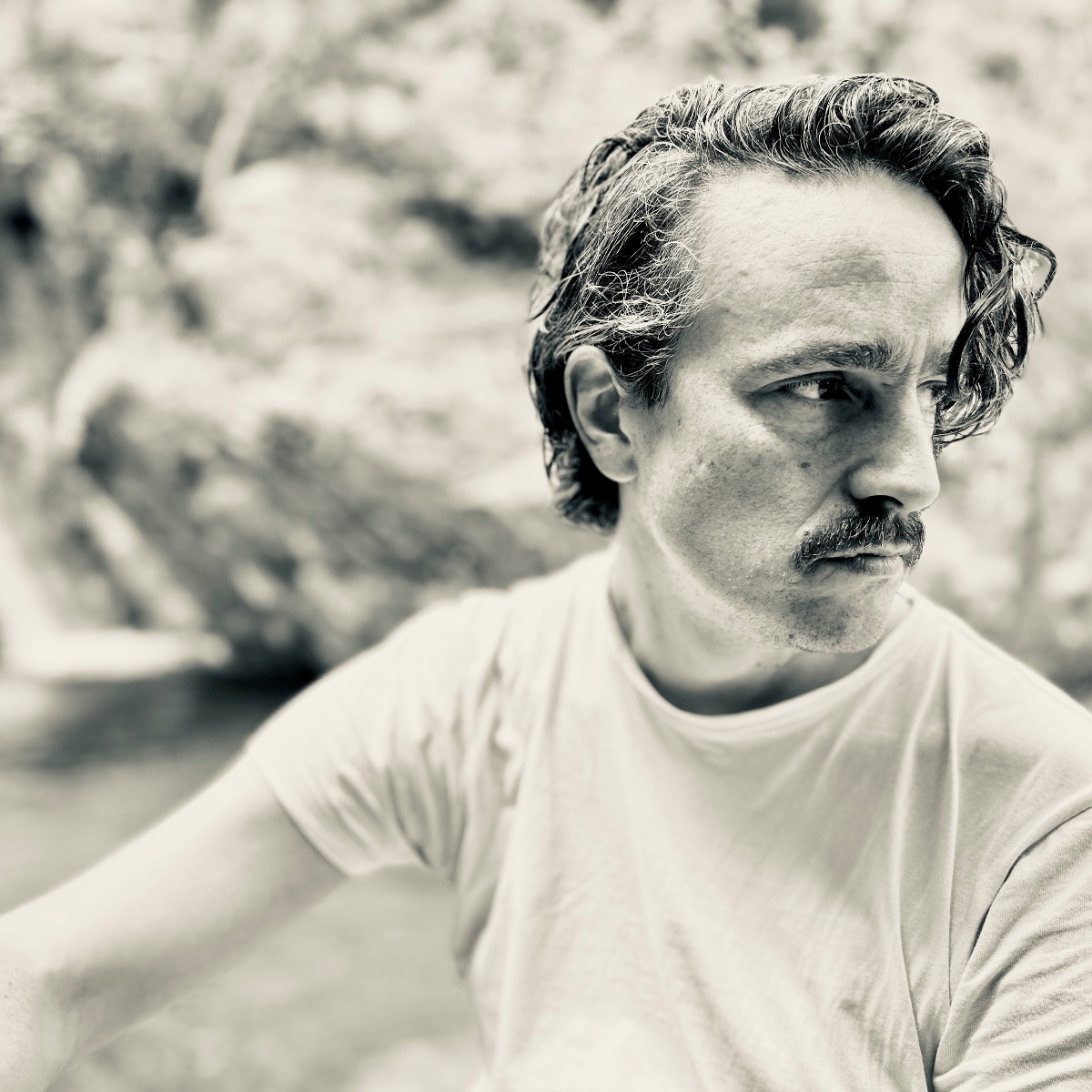Lorelle Meets The Obsolete | Interview with Lorena and Alberto
Mexico might be known for some of the best garage rock on the planet but Lorelle Meets The Obsolete leaves the competition in their cosmic fuzz fueled dust!
Captcha Records has long been home to some of the sickest albums I’ve ever heard. ‘Killed ‘Em Deader ‘N a Six Card Poker Hand’ by The Epsilons is literally one of my top twenty favorite albums. But until the recent LP reissue of that album I didn’t really know much about the label that had released it. However after the release I found their webpage and started digging into the back catalog. There were some really cool surprises awaiting me in the Captcha vaults, but none of them were more stunning or striking than Lorelle Meets The Obsolete. Encompassing nearly everything that I love about music from stunningly audible lo-fi production to fuzzy, reverb drenched guitars, choking out sludgy gnarled rock and roll with crazy space sounds and plenty of feedback swirling around in the mix, it was love at first, well sound… If you just add some organs for ambiance along with a husband and wife duo to that formula you have Lorelle Meets The Obsolete, it was simply perfection in my eyes. Their second album Corruptible Faces was released not too long ago and while ordering my copy I decided it was way past time I talked shop with them. It isn’t easy pinning the couple down these days between tours and recently relocating, but I luckily managed to catch Lorena and Alberto before they headed out on the road across the U.S. and Europe, limited tour edition 12” in hand.
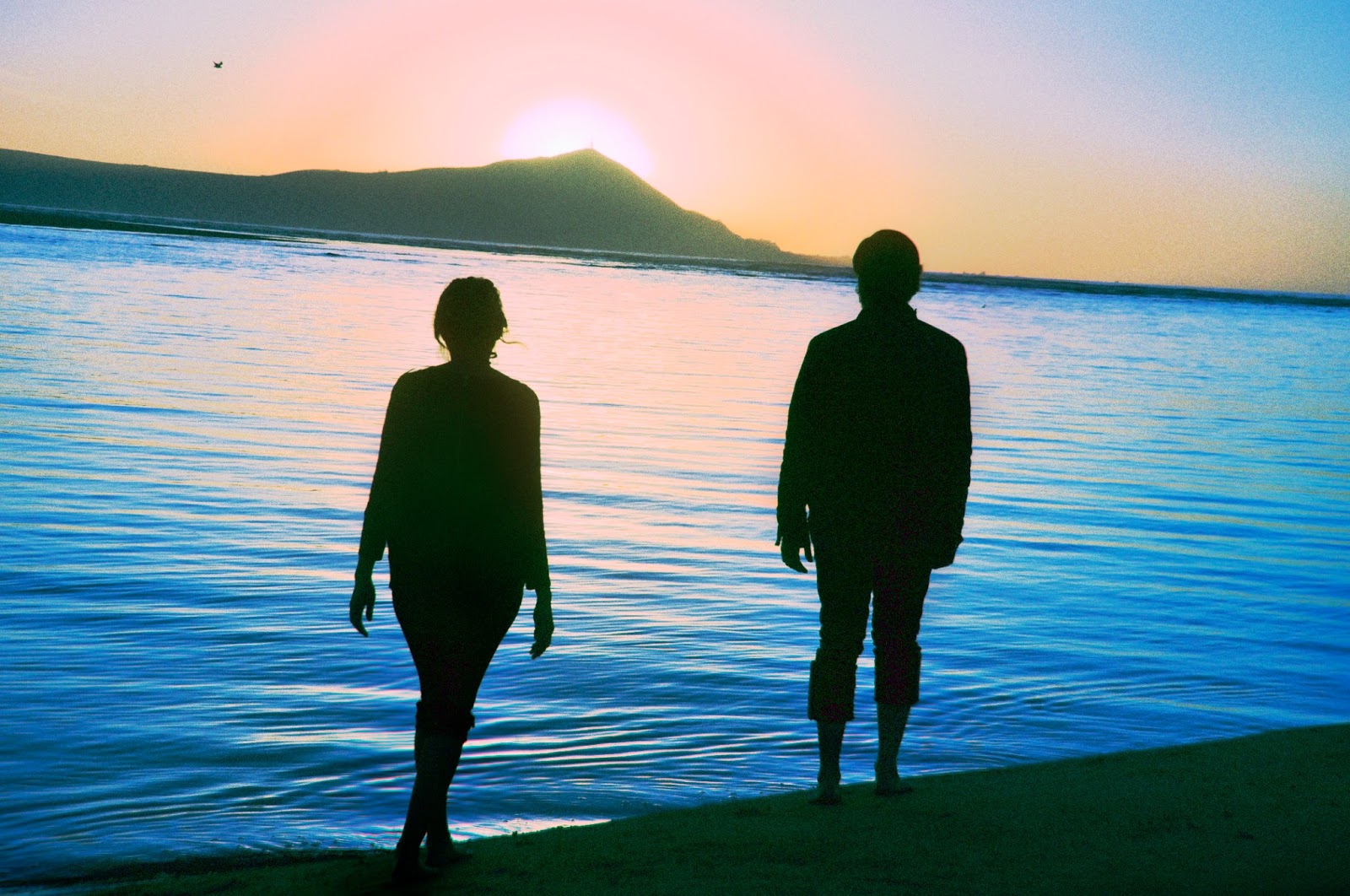
Where exactly is the band located? How long have you been there?
Alberto: We’re currently living in Ensenada, Baja California but it all started in Guadalajara. We moved to Mexico City in February of 2011 and finally got here in January.
How would you describe the music scene there? Has it played a large role in Lorelle Meets The Obsolete’s existence?
Lorena: We’ve been in Ensenada for barely five months and we’ve only played here once so we’re not really aware of the music scene.
Alberto: On the other hand we could definitely talk about Mexico City’s scene and I’d say as a whole it’s a bit funny and it’s constructed over really loose structures with weird priorities. It’s definitely not stable or sustainable. Its’ behavior is what helped us form our ideology as a band and shape our work ethics so yeah, I think it did play a major role in our existence.
Are either of you in any other bands? Have you been in any bands that released anything?
Lorena: This is our only band for the time being. Before Lorelle Meets The Obsolete Alberto and I used to play in a band called Soho Riots. We released an EP and recorded an album but it never came out. We also had another band going on called Holy Mountains and played live a couple of times but never released anything.
How long have you known each other? How did you meet?
Lorena: We’ve known each other for about nine years. A friend of mine from college introduced me to Alberto. They used to play together and I played bass in a girl band. Alberto wanted to jam with me but we never had the chance to get together. I felt intimidated by him because I didn’t really know how to play but we started dating, became a couple, eventually formed our first band and haven’t stopped playing.
What led you to start Lorelle Meets The Obsolete?
Lorena: Playing in other bands was the main reason we started Lorelle Meets The Obsolete. We were tired of being incapable of communicating with our former band mates. Soho Riots, our previous band, was a complete chaos and a total mess in terms of communication and teamwork. So I had been working on several songs and didn’t feel like sharing them with the band. Alberto helped me record them and that’s how everything started. Now we’re just a duo.
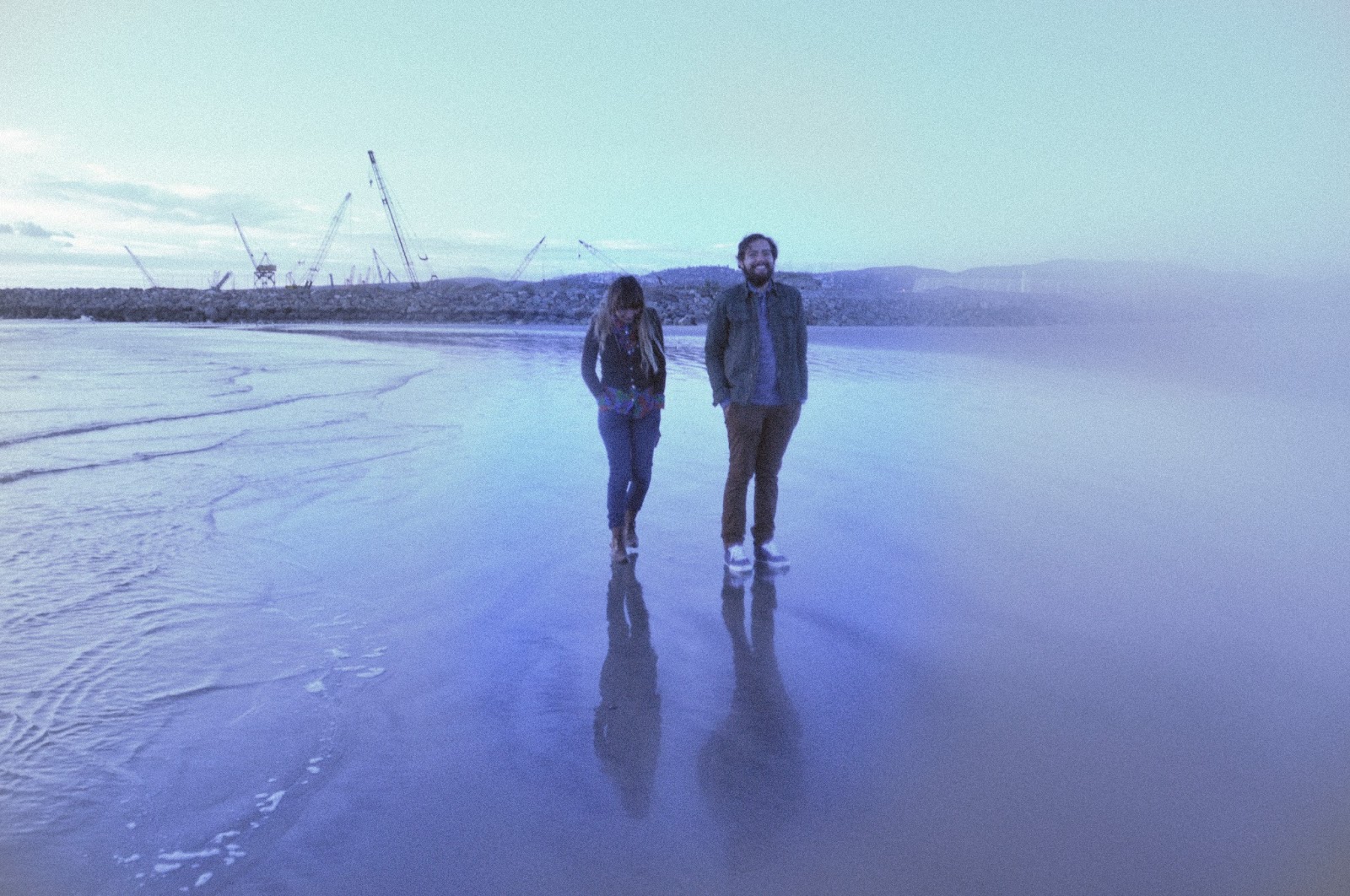
What inspired you to take stage names? What are your real names? What does the name Lorelle Meets The Obsolete mean?
Lorena: My real name is Lorena Quintanilla and The Obsolete is Alberto González. Taking stage names was part of the plan being a duo. This way people would always know we’re not a full band.
Alberto: The name is actually a joke. Lorelle came out from this Seinfeld fictional film called “Rochelle, Rochelle”. We’re huge fans so I started calling Lorena ‘Lorelle’. As for my stage name, The Obsolete was taken from a Twilight Zone episode called “The Obsolete Man”.
Sometimes I forget that there are only two people playing on the records. Why a two-piece band rather than a traditional trio or larger rock band?
Lorena: It all comes down to the same reason we started the band to begin with, we were tired of playing with other people who didn’t share the same ideas as us. We definitely prefer to record everything ourselves and just have guest musicians at our live shows. It may sound complicated but for us it’s just easier that way.
What are some of the major advantages of working as a duo? What are some of the downsides or limitations?
Alberto: Well, since we’re a couple we’re really connected in lots of ways. That’s definitely a plus I guess. We share the same ideology, work ethic and have the same expectations so it’s easier to make decisions and get things done. We also don’t have to go through these annoying democratic meetings that bands are used to ha-ha. On the other hand there sure are lots of limitations. For us, the recording process in a studio is slower; we also don’t share responsibilities or expenses like studio time, merchandise bills or touring costs with anyone else. Above all it’s very comfortable to play with someone you love, admire and respect as a human being and as a musician.
How do you handle live performances? There’s definitely more than two parts to a lot of your songs…
Lorena: We have guest musicians, a bass player and a drummer. Alberto and I take care of the guitar duties.
You just released your second album ‘Corruptible Faces’ through Captcha Records. Your first album, ‘On Welfare’, was a bit of a sleeper hit but ended up garnering a good deal of critical attention. It seems like there’s a lot more hype and attention surrounding the release of Corruptible Faces, why do you think that is? Are people finally just catching up or do you think it has something to do with the recent “psychedelic” revival that’s getting so much attention?
Alberto: I’d say it’s a bit of both. When ‘On Welfare’ came out we were complete strangers to the U.S. audience, not to mention the rest of the world. In fact, we had only played around five shows in Mexico before our first LP was released and at that point we couldn’t tour the U.S. So the bit of attention that album received was thanks to the hard work of Captcha Record’s Ben Funke who emailed press releases and mailed physical copies to all sorts of good people around the world. And Corruptible Faces came out right after Sonic Cathedral’s Psych For Sore Eyes compilation so that was definitely a good awareness push.

How did you two get hooked up with Captcha Records? (Captcha is based out of Chicago for anyone not in the know – http://www.hbsp-2x.com/)
Alberto: Ben from Captcha liked Soho Riots and when Lorena and I finished ‘On Welfare’ we dropped him a line.
How is your relationship with Captcha Records? You’ve got a 7” (‘Ghost Archives’) and recently released your second album ‘Corruptible Faces’ with them, which I believe is your entire catalog. Most other bands seem to use them as a kind of springboard to larger labels; do you plan on continuing to release records through them or are you looking to make a move as well?
Alberto: We feel very close to Ben and we’re super comfortable working with him. It hasn’t really ever occurred to us to leave the label. Our next album will be out on Captcha in the U.S. and on Sonic Cathedral in Europe so basically instead of hopping from label to label what we’re trying to do is set up collaborations through our music and hopefully this way we’ll contribute to Captcha’s and Sonic Cathedral Records’ growth.
Lorena: For us, being independent includes a strong sense of community. It’s not about growing as a separate entity. It’s about growing along with our community. That’s why we don’t use our labels as springboards.
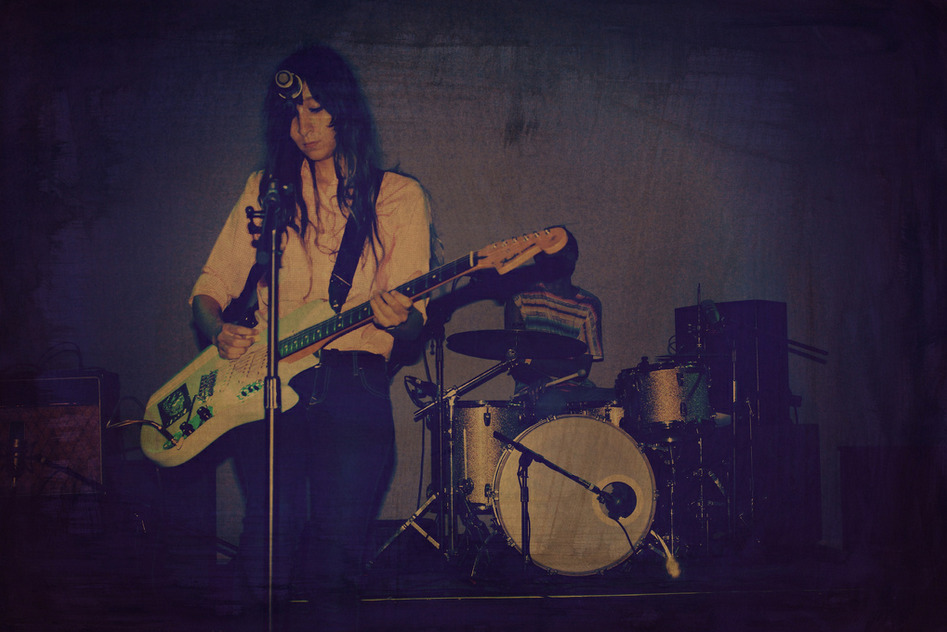
Tell me a little about the recording of ‘Corruptible Faces’. Where was it recorded? Who recorded it? What equipment was used?
Alberto: It was all recorded and mixed at our home in Mexico City and I was responsible for this job. There’s nothing fancy about the equipment, just a TASCAM audio interface, a Joemeek Studio Channel, a dbx compressor, an Akai reel-to-reel machine and a bunch of guitar pedals.
Was the recording for ‘Corruptible Faces’ much different than the ‘On Welfare’ or ‘Ghost Archives’ sessions?
Alberto: Not at all. It was pretty much the same equipment. ‘On Welfare’ was recorded at my parent’s house in Guadalajara and ‘Ghost Archives’ came out from the same sessions as ‘Corruptible Faces’.
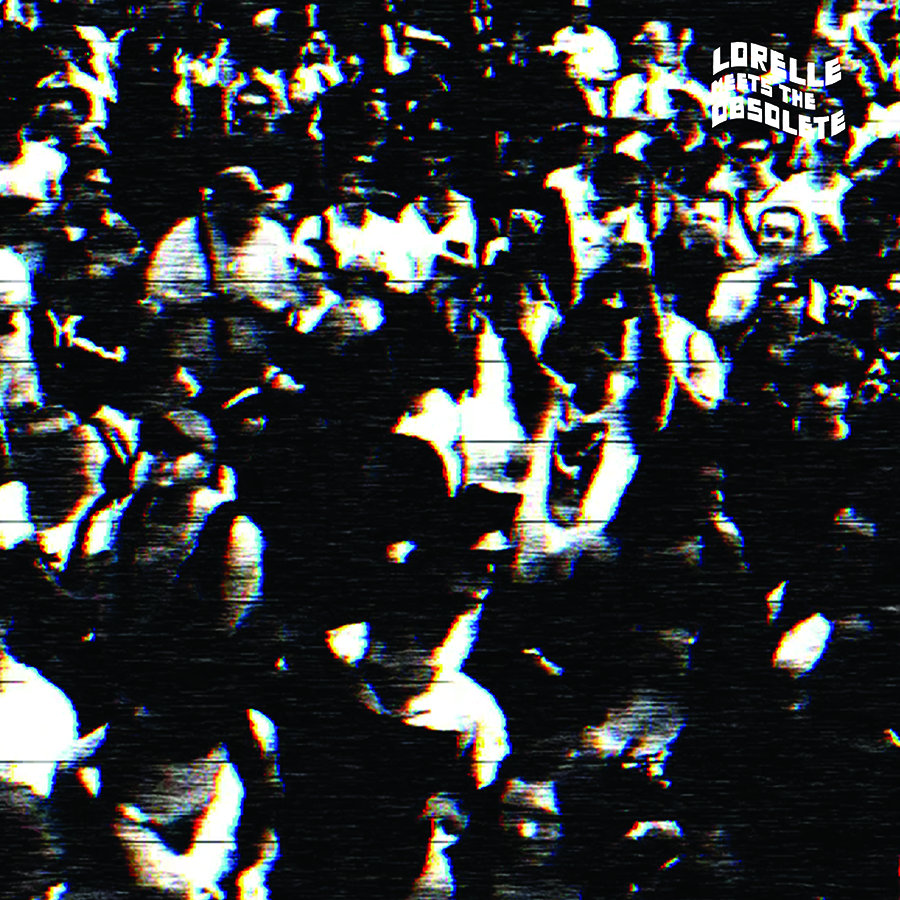
Are there any plans for any other recordings this year, a 7” or some other morsel for hungry fans?
Lorena: We have a new LP coming out in September. This one was recorded last year in Chicago and Steuben, Wisconsin.
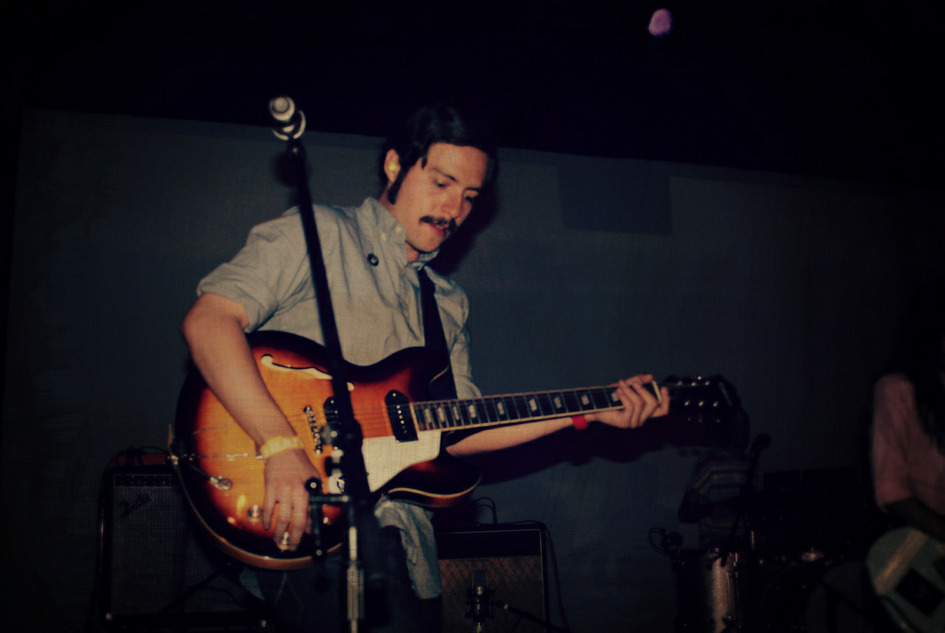
Can you talk a little bit about the songwriting process for the band? Is it a collaborative effort worked out together or does someone have a more finalized idea and bring it in to work out with the other?
Lorena: Our creative process is very asymmetrical. I wrote most of the songs on the first album ‘On Welfare’. Alberto added layers of instruments and then recorded a couple of songs he wrote during the recording process. Corruptible Faces was a bit more collaborative. I had some tunes ready and so did Alberto, but most of the pieces on that album are songs we worked out together. Our upcoming record is our most collaborative work by far. None of us worked on this one alone and we had the best time. But now it’s different, we’re working separately once again.

I don’t like to try and label or classify music, it’s a kind of art and I don’t think that approach is the best way to translate sound. How would you describe Lorelle Meets The Obsolete’s music?
Lorena: I wouldn’t dare to classify or label it either. What we’re trying to communicate is in our records and I couldn’t say anything else about our music. That’s why we make music, so we don’t have to explain ourselves; because we’re terrible at it.
What do you have planned as far as touring goes this year? Is there any chance of a US appearance or two?
Alberto: Absolutely. We’re touring all across the U.S. starting on June 12th in San Jose California, from coast to coast! We’ll also be playing in Europe in late September.
Who are some of your favorite acts you’ve played with?
Alberto: Holy Wave, Nothing People, Purling Hiss, Thee Oh Sees, Has A Shadow & Blunt Reyvnols?
Do you have a funny story about a live show you’d like to share with our readers?
Alberto: A couple of years ago we played this small festival in Mexico City and pissed off the guys who rented the backline because they felt we were playing too loud. They just kept turning the amps volume down. Lorena got super angry and at the end of our set she started to smash her guitar against the amp until one of the owners got on stage and took her guitar away.
Lorena: I felt like a little grounded girl.
Do you have any plans or goals that you would like to accomplish this year?
Lorena: I’d like to record our next album. I’m really really excited about the new tunes; can’t wait.
Why do you think it is that Psychedelic and Garage rock have come back to the forefront of the industry after all of these years?
Lorena: I think what got bigger is media attention because psychedelic and garage rock are genres that have always been there. Why? I don’t know.
Alberto: I guess there’s a fashionable attribute that’s appealing to the masses and that it has nothing to do with the music itself.
How do you feel about digital music and distribution? There’s a lot of stuff, you are a prime example of actually, that I’d never ever have the chance to hear and be exposed to otherwise. It’s rapidly changing the face of the music industry to be sure though and I was wondering how you felt about that as an artist during these somewhat turbulent times.
Alberto: From our standpoint I think the Internet as a distribution method is great. There are some great tools that give us the chance to create a very strong bond with the listeners in a more direct way. We’re not trying to make a living out of our music so I don’t feel very pessimistic about the decline of the music industry as we know it.
Lorena: The Internet’s immediacy makes some things easier but there are other things that stay difficult. For me art, or whatever it’s called that we do, has to do with transcendence (in one or a thousand people) and in that sense it doesn’t matter how long it takes your music to get out there. What matters is how long it can survive in people’s minds, its influence and interaction with the social environment, etc. There have always been people taking advantage of technology but it’s really easy to forget Internet one hit wonder bands.
Everything you have put out has been on vinyl with the exception of the digital live EP that comes with Corruptible Faces if you order directly from Captcha Records; do you intentionally avoid CD releases? If so, why?
Lorena: We definitely prefer vinyl but it’s not like we’ve avoided CD releases. In fact, Captcha Records just released On Welfare and Corruptible Faces on CD.
I love having a digital copy of the album to listen to wherever and whenever I please but there’s something magical about holding an album in your hands; having something to look at and experience along with the music. Do you have any such sort of attachment to physical releases?
Alberto: Absolutely we do. What I love about vinyl is that it’s a format that demands your complete attention. When you place the needle on the record there’s not much you can do besides listen to the music due to the fact that you’ll have to change the side in twenty or thirty minutes.
Traditionally rock has been a total boys club but thankfully I see that changing more and more. In fact only a handful of the bands that I’ve talked to haven’t had at least one female member. How do you feel about how women are treated in the rock scene? Do you think it’s still even an issue?
Lorena: I don’t think I’m treated differently from my band mates. I know there are women who fought in the past for that fact though and my way of thanking them is by trying to preserve what they’ve accomplished and not seeing myself or others through gender. Sometimes people try to help me carry my stuff but I don’t know if it’s because I’m a girl or because I’m really small ha-ha.
I ask everyone I talk to this question as I have this compulsive, gut gnawing fear I’m going to miss out on my next favorite band. Who should we be listening to that we might not have heard of from your local area?
Lorena: Has a Shadow.
Alberto: Blunt Reyvnols?
What about nationally and internationally?
Alberto: Dahga Bloom.
Lorena: Nothing People and Camel Heads.
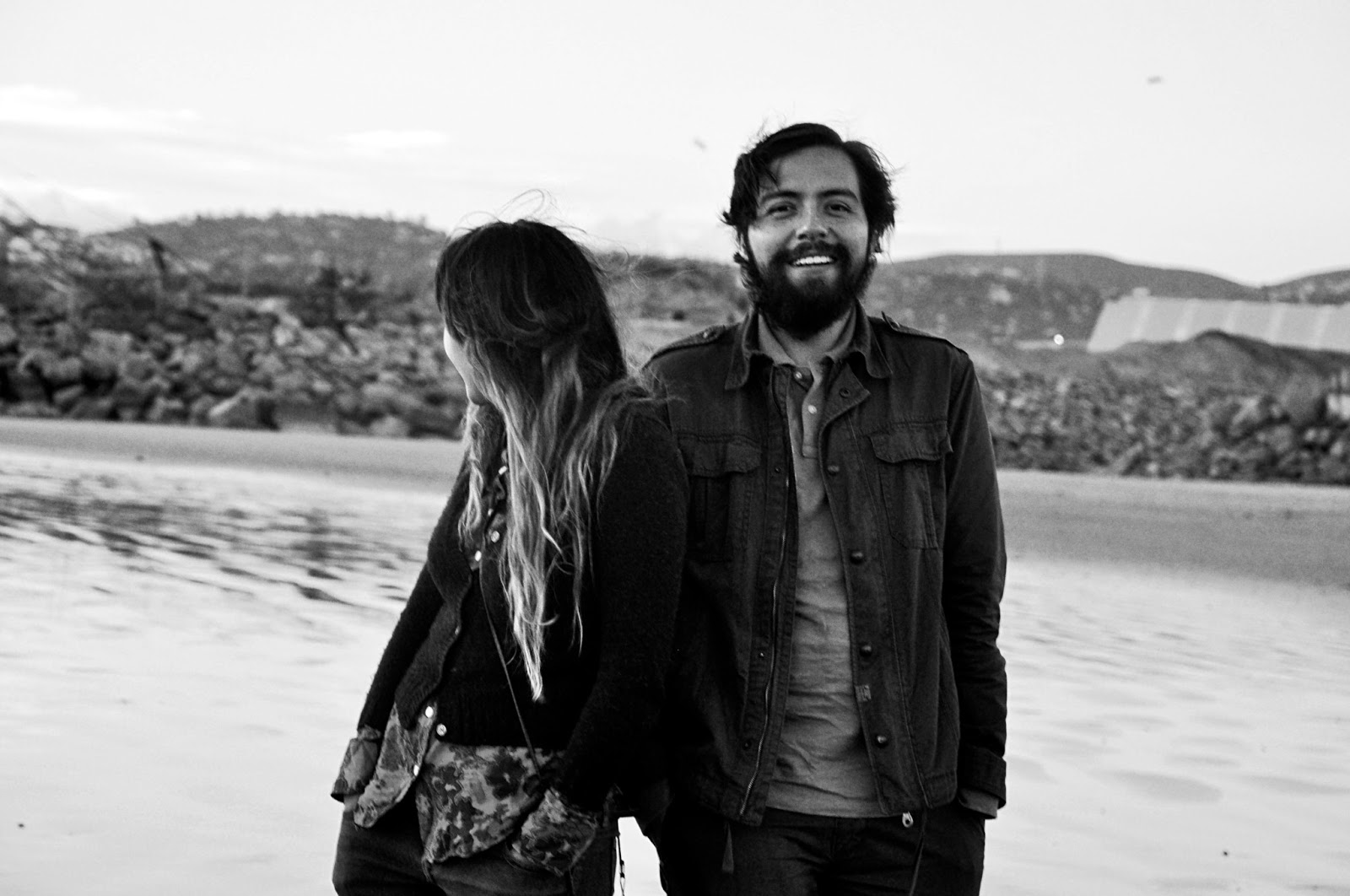
Is there anything that I missed or that you’d like to discuss?
Alberto: Thanks a lot for this great interview. We’ll see you on tour!
Roman Rathert
DISCOGRAPHY
(2011) Lorelle Meets The Obsolete – ‘On Welfare’ – 12” – Captcha Records
(2012) Lorelle Meets The Obsolete – ‘Ghost Archives’ – 7” – Captcha Records
(2013) Lorelle Meets The Obsolete – ‘Corruptible Faces’ – 12” – Captcha Records (Limited to 500)
Headline photo: Rene
Lorelle Meets The Obsolete Facebook / Instagram / Twitter / Bandcamp

